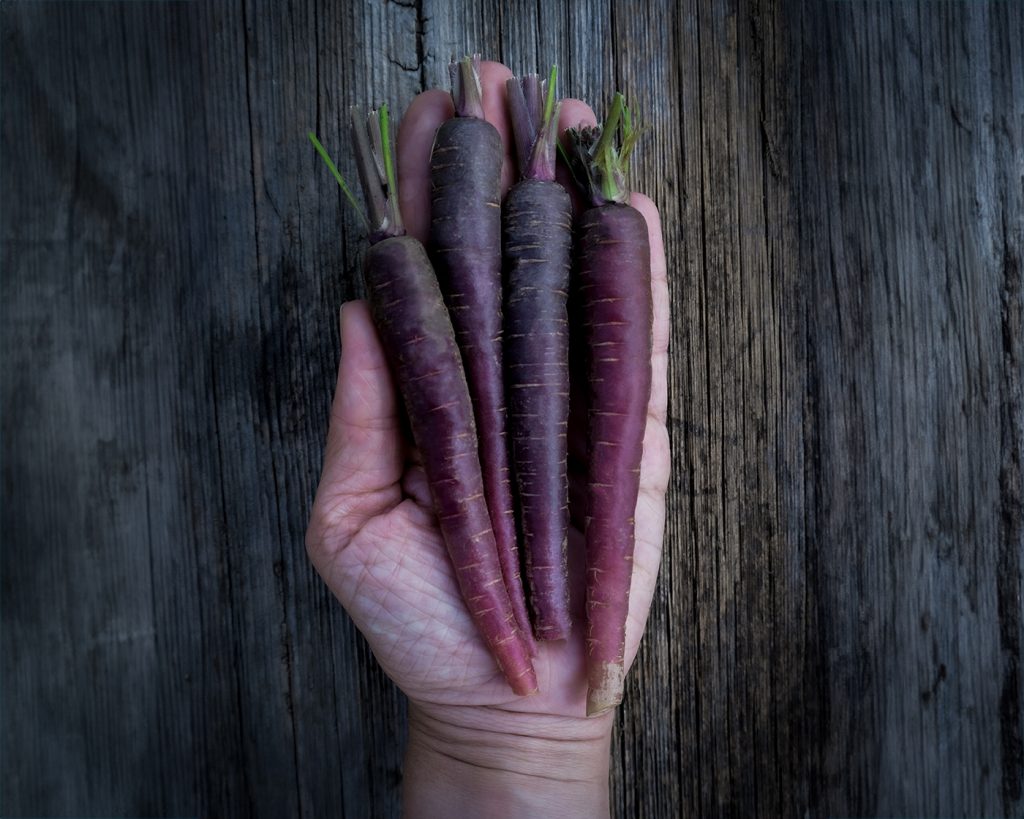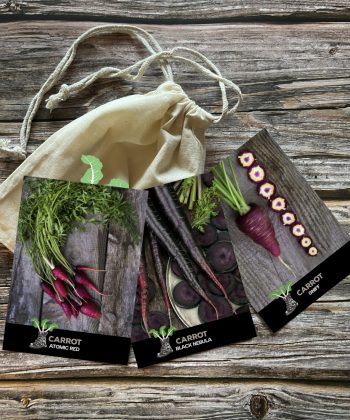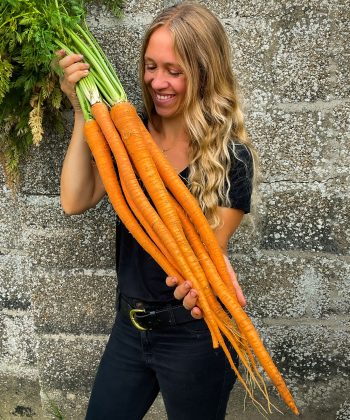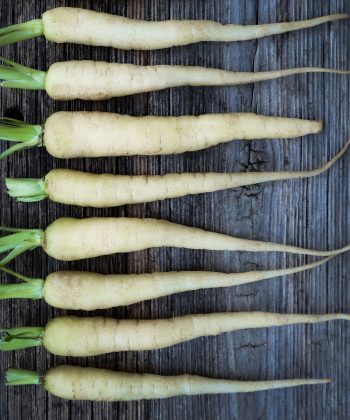Growing Advice
How to Sow and Grow Carrots
Carrots are a versatile and nutritious vegetable that can be easily grown in the UK, making them a popular choice for home gardeners. Whether you have a vegetable garden or a small balcony, cultivating carrots from seeds can be a rewarding experience. In this guide, we’ll walk you through the step-by-step process of sowing and growing carrot seeds in the UK.
Jump to a topic:
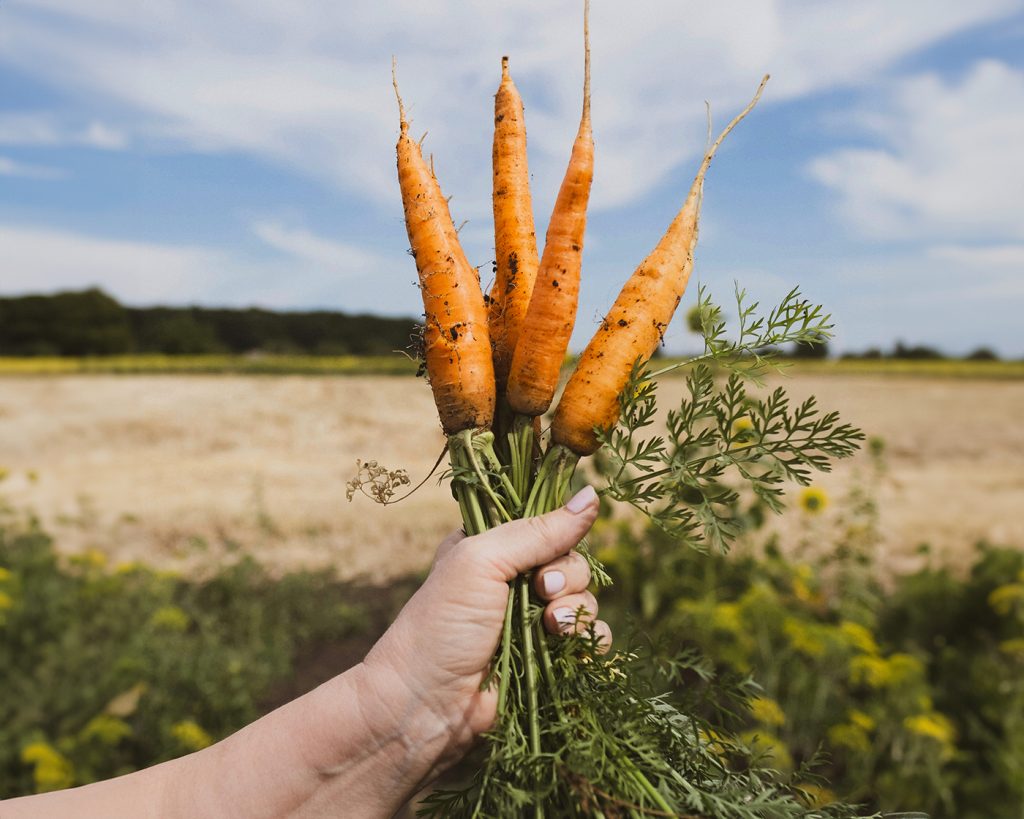
Choosing your carrot varieties
Before you start, it’s essential to choose the right carrot variety for your growing conditions. We have a great selection of carrot varieties that suit being grown in the UK climate. Don’t just stick to orange carrots – why not try different colours to liven up your plate. Check out these colourful beauties here.
Materials you’ll need to grow carrots
- Carrot seeds
- Poor quality peat-free compost – you can reuse old compost
- Sand
- Trowel
- Watering can
- A growing space of some kind
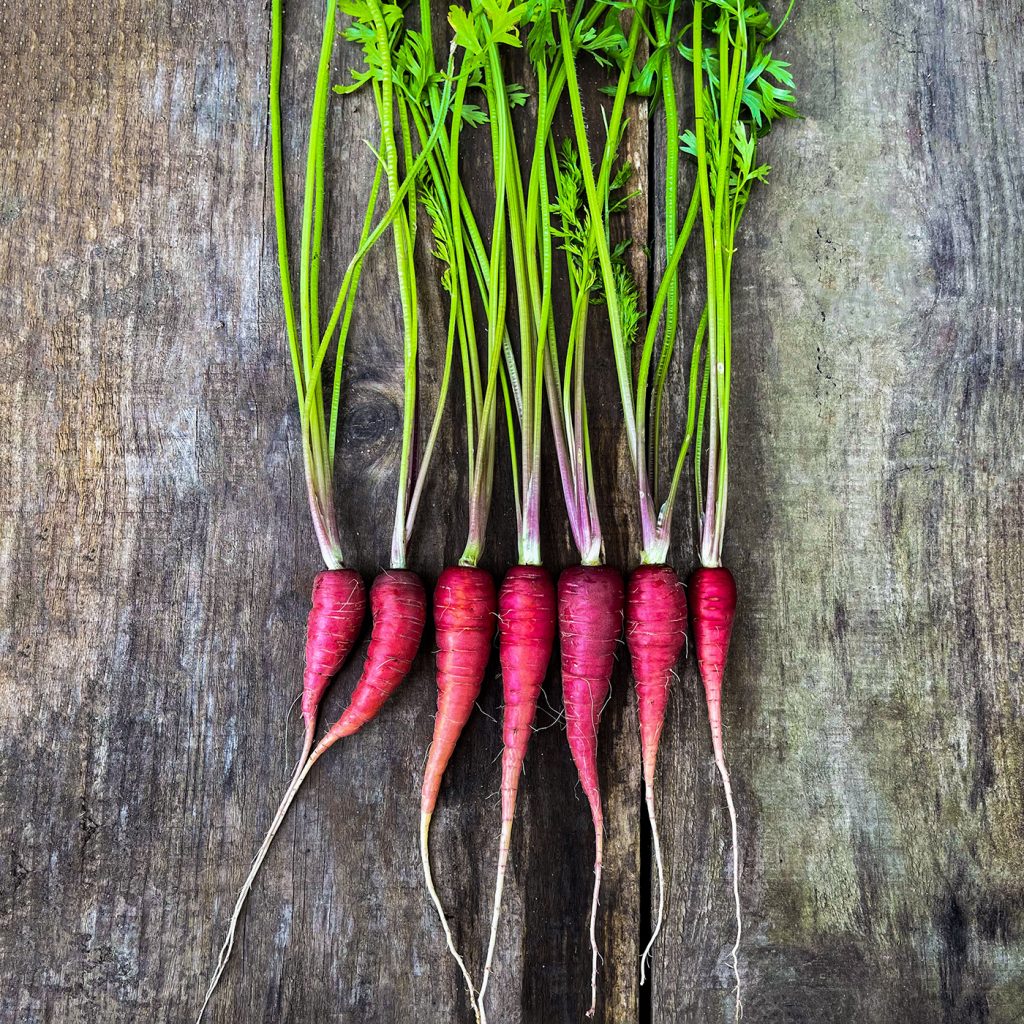
Sowing Carrot Seeds
Prepare the Soil:
- Ensure your soil is well-draining and free from large stones that can hinder carrot growth. Carrots thrive in loose, sandy soil. If your soil is heavy, consider adding sand or organic matter to improve drainage. Carrots also prefer low nutrient compost so this is a great opportunity to reuse old compost.
Choose the Right Time:
- Carrots can be sown directly outdoors from March to July, depending on your location in the UK. Aim for a time when the soil is workable and not too wet. Carrot seeds can take up to 14-21 days to germinate, so plan accordingly.
Sow the Seeds:
- Plant carrot seeds in shallow furrows, spacing them according to the variety’s recommendations (usually 5cm apart). Cover the seeds lightly with soil and water gently. Consider using a plank or board to gently press the soil over the seeds to ensure good seed-to-soil contact.
Thin Out Seedlings:
- Once the seedlings emerge, thin them to ensure proper spacing. Carrots need adequate space to develop, so thin them to the recommended distance (usually 2-4 inches apart).
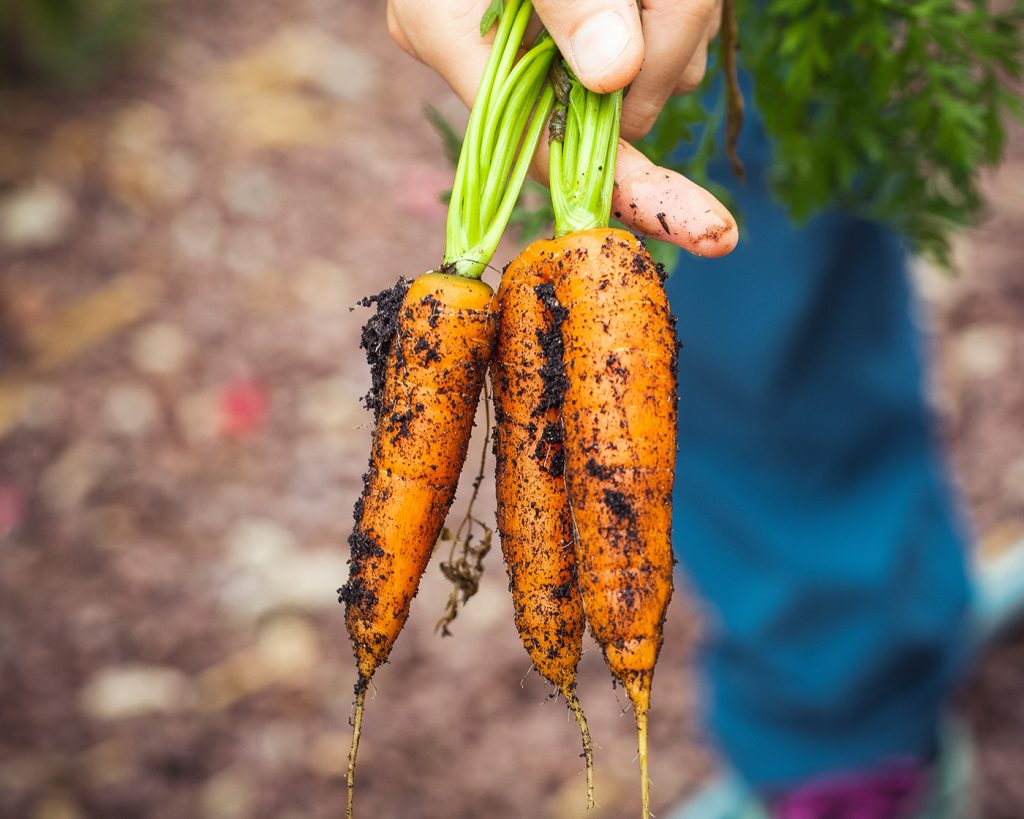
Growing Carrot Plants
Watering:
- Keep the soil consistently moist but not waterlogged. Water deeply to encourage the carrots to grow longer roots. Be cautious not to dislodge the delicate seedlings during watering.
Feeding:
- Carrots don’t require feedings at all as this can cause them to branch – they’re super happy with a hard life.
Mulching (Optional):
- Mulching can help retain soil moisture and suppress weeds. Apply a layer of straw or compost around the carrot plants, being careful not to cover the seedlings. If you’re a no dig gardener there’s no need to add extra organic matter.
Protecting from Pests:
- Carrots are susceptible to pests like carrot fly. Consider using row covers or fleece to protect your crop. Companion planting with aromatic herbs like rosemary and sage can also deter pests. Alternatively you can grow carrots in raised containers. Carrot flies can’t fly higher than 1 metre, so if you grow at height you can avoid the problem!
Harvesting:
- Carrots are usually ready for harvest 10-12 weeks after sowing, but this can vary depending on the variety. Gently loosen the soil around the carrots with a fork before pulling them out to avoid breakage.
Growing carrots from seeds in the UK can be a fulfilling and enjoyable gardening experience. With the right preparation, care, and attention to detail, you can harvest a bountiful crop of crisp, sweet carrots that are perfect for a variety of culinary delights. Get your hands dirty, embrace the process, and soon you’ll be enjoying the fruits (or rather, vegetables) of your labour. Happy gardening!


